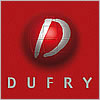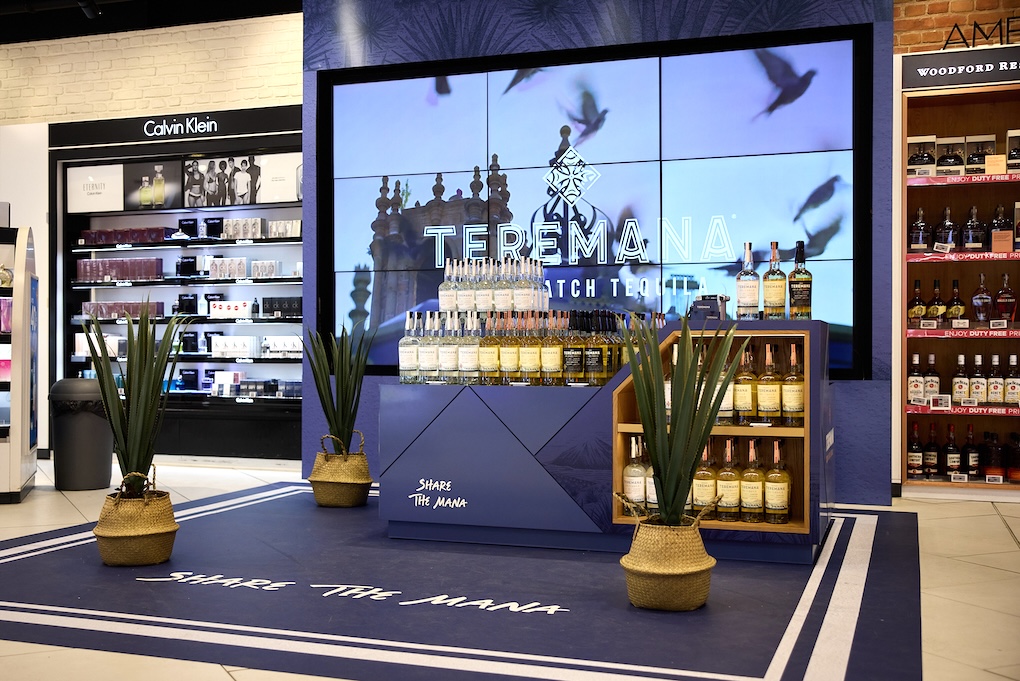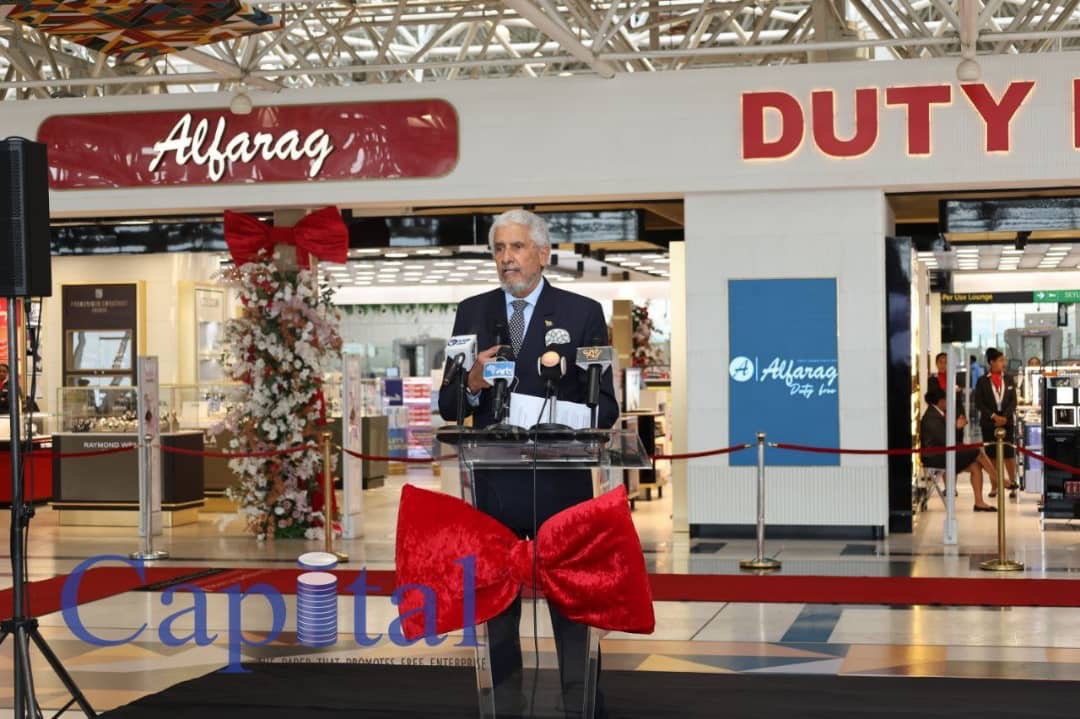 | |
| 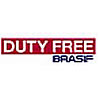 |
Julián Díaz: We are focused on being the number one company in this business – not only in sales but in profitability and return on investment for shareholders” | |
Editor’s introduction: On 17 March The Moodie Report broke the stunning news that Dufry had signed a binding agreement to acquire the retail businesses of Brasif for US$250 million, with the same amount being spent on the latter’s logistics and buying arm Eurotrade.
The acquisition, duly completed on 23 March, was a dramatic coup for the ambitious publicly-held Swiss travel retailer. It was a deal that not only transformed Dufry’s business but also the global travel retail landscape.
Brasif was a big acquisition in anyone’s terms – it is the leading duty free retailer in South America, having been present in Brazil for over 20 years. Its turnover last year reached BRL637 million (around US$280 million at then prevalent exchange rates) buoyed by a vibrant Arrivals shop business and a fast-improving Departures one.
What does the acquisition mean for Dufry – now an almost US$1 billion player at retail level – in both regional and global terms? How will Brasif be integrated, structured, managed and branded? What about the security of Brasif’s contracts? And is Dufry still on the acquisition trail?
To answer all those critical questions and more, The Moodie Report spoke earlier today to the mastermind behind the US$500 million takeover – Dufry CEO Julián Díaz González – who talked for the first time about the acquisition and its repercussions for both Dufry and the industry. It’s a landmark interview at a landmark point in our industry’s evolution.
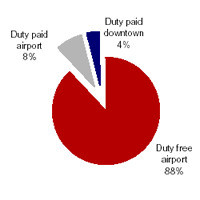 |
Brasif sales split 2005 by channel Source: © Dufry |
Julián how pleased are you with this acquisition in terms of both personal satisfaction and the achieving of strategic objectives?
This is an important step towards achieving the targets set by the main shareholders and Board of Directors when we acquired Dufry.
We are focused on being the number one company in this business – not only in sales but in profitability and return on investment for shareholders.
This is all based on a model that I have explained several times before, one that is focused on being an efficient company – it is the only way to survive and grow in this business.
That involves what we call a global model”¦ with a global ambition. This is based around five important points.
• Number 1: We want to be a true retailer [not simply a travel retailer – Ed]
• Number 2: We want to create long-term business relationships with the airport authorities and with local partners
• Number 3: We want to enhance the central functions. The central functions today are operations on one side and financials on the other, including IT.
• Number 4: We are a global company but we are also focused on local knowledge. We are not just running the company from Basle. We are setting up the principles and creating the values from Basle. But implementation is always local – we don’t try to use the same values everywhere.
• Number 5: Maybe the most important point is that we always focus on profitable growth.
We then join those five principles with our original strategy of focusing on the touristic and emergent markets as well as [by channel] the travel retail (number one) sector, onboard sales and cruiselines, and also developing shopping centres in airports.
We are not satisfied with stopping here. We are always looking forward. So far our approach has worked. And I hope you will see that in our future results.
Overall we are very pleased with our acquisition of Brasif. What we found, and I’m not just saying this, is that it is a very good company. We are going to integrate Brasif into Dufry over the next 12 months in a proper way.
 |
Brasif sales 2005 split by type. Source: © Dufry |
What is the timetable? And what will be the structure?
The first step will be the new company organization which will be implemented from now to the end of April with the creation of a new fifth region for Dufry.
So we will have five regions:
– Europe
– Africa
– Russia and Eurasia
– Central America, North America and Caribbean
– South America
The intention is to have a strong operation in this part of the world [South America] and to try to expand the business from there. The [regional] head office will be in Rio.
I note from your post-acquisition presentation that South America now actually tops the Dufry league in terms of regional sales.
It’s about equal with North America and Europe. And in terms of profitability the balance between the five regions is almost equal.
That was always one of your biggest tasks wasn’t it – to move away from the old model that had to sustain many unprofitable businesses towards a new model that was more diverse and balanced? You seem to have that now.
We’re on our way. We haven’t finished. We’re involved also in a key internal process, covering three very important areas:
1) IT and logistics
2) The company reorganization
3) Our procedures and policies worldwide
We have to be more efficient worldwide. I am pleased with progress but we’re far from the optimal situation. The internal reorganization of the company is very important in setting up the true base for creating new growth. We cannot grow at any time at any price.
You’ve hit on the historic Achilles heel of the duty free business – an obsession with turnover rather than profitability.
I totally agree with that.
 |
The ‘new Dufry’: Proforma turnover split 2005. Source: © Dufry |
You’ve spent US$500 million on this deal. How are you going to pay that down? How are you going to extract more value from what seems to be a well-run company?
The synergies we have found between both groups are giving us the opportunity to increase the level of profitability of the company.
Both the volumes and the fact that we understand the market globally will add a lot of synergies to the existing Brasif operation – synergies from the level of sales, from the level of margins, and from being more efficient in the central functions.
But the acquisition doesn’t mean Brasif will be totally integrated into Dufry. Both will merge. This is important to me. We don’t want to go to a country and say “This is our way of doing things”. We try to be local and in this case with Brasif it’s even more important as it is a big-sized corporation in Brazil.
We are trying to be Dufry there but with Brasif characteristics and by taking the Brazilian market conditions into consideration.
I guess you’ve factored in the historic volatility of South America – the way you’re set up regionally now seems to offer a safeguard in case of a downturn anywhere?
That’s exactly the point. You check the profitability split of the company and you’ll see the balance between the different regions is quite equal. If you have a problem in one place it won’t influence the whole company beyond a certain period of time. This balance was planned like that so the potential risk of travel retail and emergent markets could be balanced.
How will you brand the Brasif stores in the future?
It’s not decided yet. But I can tell you that initially we will continue calling them Brasif. I think there will be a process that will finish with one name that will remember we are Dufry and will remind [consumers] of Brasif. We are on the way to finding a name so that both things can be accomplished.
How about management? You’ve created a fifth division. Who will run it?
Yes the new CEO for region number five has been decided. It will be officially announced very soon. He will move to Rio de Janeiro in the week commencing the 17th (of April). We’ll then announce the new structure”¦. that will be adapted to Dufry’s structure. It will be comparable with other companies that we have within the organization.
Whenever one buys a duty free or concessionaire company one of the prime considerations is security of contract tenure. In your post-acquisition press release you said that the Brasif contracts generally fit in with the average duration of your existing portfolio. How secure are those contracts? Is there any fear that now the original and long-term owners and management have gone that this security is in any way undermined?
I think the most important thing is that we are working in a country which offers security from a legal point of view. The agreement, of course, is also properly organised in this respect.
But this is no different to any other country since we started Dufry. In each case we had to secure and stabilize relationships with airport authorities and we were very careful about this before the Brasif acquisition. We are in a very good situation.
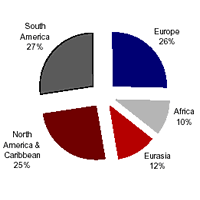 |
The ‘new Dufry’: Proforma turnover split 2005 by region. Source: © Dufry |
How long were you talking to Brasif before the deal was struck?
It wasn’t a long time. It was about four months.
And there was competition wasn’t there?
I heard there were some competitors. But I can’t comment on that.
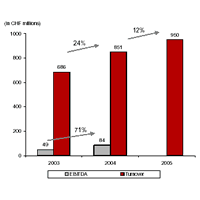 |
Dufry turnover and EBIDTA evolution. Source: © Dufry |
Are there more targets, more acquisitions out there for Dufry?
This is decided by the Board of Directors. We are involved in a business, travel retail, that has a very positive future.
We have looked at the impact of globalization and the increase in international tourism. The company is prepared for any other situation in this business. Whether that situation will arise tomorrow or in 12 months time, I don’t know. But I don’t think Dufry will stop here. I think Dufry should continue looking for opportunities.
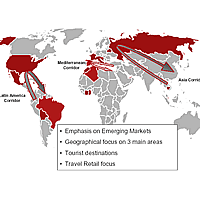 |
Dufry’s strategy. Source: © Dufry |
You’ve just spent US$500 million though – that’s a lot of money and a lot of management time. How free are you from a financial point of view and from a management point of view to go out and grow the business further? Not just in acquisition terms but also, say, in new bids?
We are not crazy about going everywhere and looking at every opportunity.
We are in a position where we can watch the balls passing by. If any one of those balls is good we will take it. It will all depend on financial and business factors and on timing.
Yes we are digesting an important acquisition that is very complex and won’t be easy. But we have a very good team of people that can implement more than one deal at the same time.
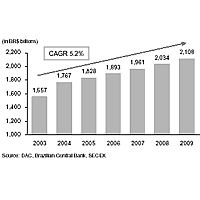 |
Brazil: GDP growth. Source: © Dufry |
What’s your message to suppliers? Inevitably many see retailer consolidation as a conduit to greater margin demands”¦
I don’t think so Martin. In my opinion they have to understand this consolidation as normal – just as there has been supplier consolidation in the past five or six years.
When I started in this business I used to meet with many suppliers across the different categories. Now in some areas for around 70-80% of the total sector you meet with only two or three companies.
Yet [in travel retail] the top ten companies probably only represent 30% of the business worldwide. That means 70% is in the hands of hundreds of companies. I don’t think this is a situation that can continue. We are in a retail business and consolidation in [domestic] retail has been a reality for some time.
We are a specialist retail business. We have two characteristics – concessions and retail. And if you mix both it’s different from normal retail. But, even so, consolidation in this global environment will, in my opinion, actually solve a lot of problems for the supplier. It’s a good opportunity for suppliers to deal with someone across many countries in terms of common policies and strategy.
We are now in 34 countries. Dufry is probably the most spread company in the industry. So when you talk to Dufry as a supplier you can talk about 34 countries, strategies and efficiencies. We as Dufry should be working hard to improve our supplier relationships – it’s no good if only we win or only the supplier wins.
 |
Brazil: Passenger evolution (total international pax). Source: © Dufry |
Julián it strikes me that your great opportunity, having created this platform, is if you can raise your qualitative game – and get more people in-store, convert more of them to spenders and raise the average spend.
I agree. I am very concerned to find the right way to implement our global strategies. The detail is so important. You are talking about different human beings, different nationalities, and different ways of doing things. To organize all that in a very efficient way so that everybody looks forward in the same way is very complex. How to manage 52 different nationalities across 34 countries in a single company is extremely complex.
This is the fourth re-organisation we are facing since we acquired the company. Why? Because when we acquired the company it had around CHF650 million in turnover, this year we will be more than double that (in two years).
But we have a lot of things ahead of us. We are going to be very involved in a number of tenders, which we have not forgotten about. We have been very focused on this transaction but we have also done a lot of internal work that will be presented in different tenders through the next 30 days.
Are you very serious about the Copenhagen and Sydney duty free tenders?
I am very serious everywhere, provided that it is a profitable operation for Dufry. If it’s not profitable for Dufry the name of the place doesn’t matter.
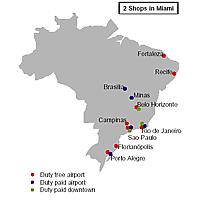 |
Brazif enjoys a leading position across duty free, duty paid and duty paid downtown stores Source: © Dufry |
Missing out on Aldeasa was obviously a big disappointment to you and the company but this must be rich compensation?
I am talking not about my point of view but that of my team based in Basle and the team globally. This is a reward for Dufry’s team. For the past two years they have been unbelievable”¦ we have multiplied the original sales by 40%, we have multiplied the EBITDA by two.
But that is not what is most important to the employees of the company. I can tell you what is most important – the company bloomed when we announced the Brasif acquisition. They felt reward – and that was very important to me as I now have to meet with 3,000 people globally [in the new-look Dufry].
It is natural human behaviour that you want to be part of a company that is winning. This is making my life easier – because that’s part of my remit to make people happy.
And you must be happy?
Very happy but very tired.
So what’s next for Julian Diaz?
I am going on holiday this afternoon. I am going skiing with my family. It’s the first time we have spent good time together for many months.

